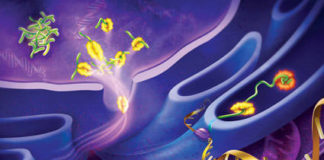Facial Aging Is More Than Skin Deep
Facelifts and other wrinkle-reducing procedures have long been sought by people wanting to ward off the signs of aging, but new research suggests that it takes more than tightening loose skin to restore a youthful look.
Early Death By Junk Food? High Levels Of Phosphate In Sodas...
Here's another reason to kick the soda habit. New research published online in the FASEB Journal shows that high levels of phosphates may add more "pop" to sodas and processed foods than once thought. That's because researchers have found that the high levels of phosphates accelerate signs of aging.
Sleeping Well At 100 Years Of Age: Study Searches For The...
A study in the May 1 issue of the journal Sleep is the first to examine sleep issues in a large sample of exceptionally old adults, including nearly 2,800 people who were 100 years of age and older. Results show that about 65 percent of the sample reported that their sleep quality was...
Shock And Age
The accumulation of misfolded protein marks the accrual of years as the body ages. Could heat shock proteins be used to reduce the effects of aging and diminish the risk of disease by untangling improperly folded proteins?
Resveratrol Shows Activity Against Insulin Resistance And Retinal Disease
Anti-aging compound appears to function in multiple ways. A naturally occurring chemical found in grapes and other foods may help reverse some of the ills associated with aging and being overweight, new studies suggest.
Want To Slow Aging? New Research Suggests It Takes More Than...
Don't put down the red wine and vitamins just yet, but if you're taking antioxidants because you hope to live longer, consider this: a new study published in the June 2010 issue of the journal Genetics casts doubt on the theory that oxidative stress to our tissues shortens lifespan.
Protein Must Exist In Specific Brain Cells To Prevent Diet-Induced Obesity
A protein found in cells throughout the body must be present in a specific set of neurons in the brain to prevent weight gain after chronic feeding on high-calorie meals, new findings from UT Southwestern Medical Center researchers suggest.
Medications Found To Cause Long Term Cognitive Impairment Of Aging Brain,...
Drugs commonly taken for a variety of common medical conditions including insomnia, allergies, or incontinence negatively affect the brain causing long term cognitive impairment in older African-Americans, according to a study appearing in the July 13, 2010 print issue of Neurology, the medical journal of the American Academy of Neurology.
Exercise And Caloric Restriction Rejuvenate Synapses In Lab Mice
Harvard University researchers have uncovered a mechanism through which caloric restriction and exercise delay some of the debilitating effects of aging by rejuvenating connections between nerves and the muscles that they control.
Brain May Age Faster In People Whose Hearts Pump Less Blood
Keep your heart healthy and you may slow down the aging of your brain, according to a new study reported in Circulation: Journal of the American Heart Association. In the study, people whose hearts pumped less blood had brains that appeared older than the brains of those whose hearts pumped more blood.
Eating Berries May Activate the Brain’s Natural Housekeeper For Healthy Aging
Scientists have reported the first evidence that eating blueberries, strawberries, and acai berries may help the aging brain stay healthy in a crucial but previously unrecognized way. Their study, presented at the 240th National Meeting of the American Chemical Society (ACS), concluded that berries, and possibly walnuts, activate the brain's natural "housekeeper" mechanism, which cleans up and recycles toxic proteins linked to age-related memory loss and other mental decline.
Midlife Coffee And Tea Drinking May Protect Against Late-Life Dementia
Stockholm, Sweden -- Midlife coffee drinking can decrease the risk of dementia/Alzheimer's disease (AD) later in life. This conclusion is made in a Finnish Cardiovascular Risk Factors, Aging and Dementia (CAIDE) Study published in the Journal of Alzheimer's Disease.













